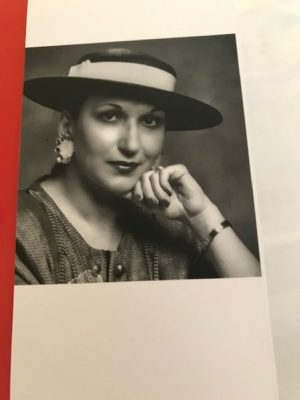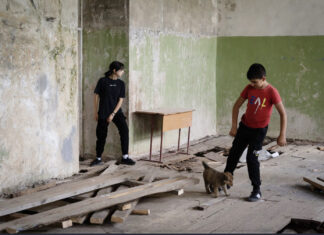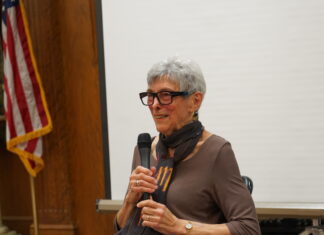Vehanoush Tekian’s Woman in Trial And in Revelation (Zankag Publishing House, Yerevan, Armenia, 2022), reaffirms Virginia Woolf’s assertion that “the principle which controls the essay is simply that it should give pleasure. . . . The essayist must know how to write. . . The triumph is the triumph of style.” Indeed, it is Tekian’s masterful manipulation of Western Armenian that foregrounds the woman of the title and gives the short stories and the poems assembled in this latest collection a unique intensity.
The foregrounding starts with the title itself, which validates the author as a woman. The dedication that follows, “To my grandmother/Takou neneyin/And my daughter/Nayiriin,” brings together three generations of women. Casually woven into the pieces are the rituals of the everyday lives of these women. Fermenting the madzoon in the warm clay pot, or lighting the odjakh with the dried peels of oranges hanging from the kitchen window frame, provide solidity through their continuity. “A spoonful to you, and a spoonful to you . . ./Madzoon is good for the bones,” says the grandmother as she coaxes her grandchildren to eat. The mother/grandmother is, in fact, always present, always ready to balance the “craziness” of the world with “compassion” and “selflessness,” so life can go on. In Tekian’s world, injustices are brought to trial in an inner tribunal built on the trusted powerful inner voice of a woman’s instincts, and not through the externally imposed justice of the courts of law, “full of deceit and bribery.”
The celebration of women is not done at the expense of the men, however. Tekian’s is not a vision based on the exclusionary politics of oppositions. Indeed, there is empathy for “the father, the brother, the son, the husband and the lover who went to war and never returned,” a theme that surfaces in several of the stories. Deceitful and abusive husbands are surely present, but it is life itself, not men, that is brought to justice.
Tekian’s is not the pitting of the old against the new either. The poet celebrates the so-called traditional virtues of piety, loyalty and selflessness, but she also glorifies passion. “Life is to be grabbed, not begged for,” she writes in the short story, “A Triangle with One Angle.” “Don’t keep love pure. . . . Without passion your days are cold and the world is flat.” Even divorce, a devastating personal experience, is seen as “a saving vessel,” rather than “destruction,” testifying, once again, to a woman’s instinct to cohere, to create.
A good example of this inclusive vision is the prose piece, “Dawn,” that opens the collection. In this story, the “Diasporan poet par excellence,” shares her experience of being asked, when on a visit to Armenia, to submit her manuscripts to the Yeghishe Charentz Museum of Literature and Art in Yerevan, so they can be placed next to the archives of Varoujan, Siamanto, Baronian and other greats. The request is evidence of the homeland’s support of diasporan authors, and challenges the widely held belief that Soviet Armenia ignored Armenian writers beyond its borders.
The scene depicted in the selections is not an exaggeratedly desolate scene. The daughter well knows that after the mother’s death, “It is a different world now. . . . My life is full of cares and fear.” Gone is “the sanctity of marriage,” gone “the Good that used to inundate my house with light.” In “Mama, Wherever You Are,” “When you were here . . . /the thorns of the roses were not thorns,” writes Tekian. Yet, the mother’s values of compassion and of self-giving never fail to provide relief. Life ultimately prevails. In “A Triangle with One Angle,” the heroine, “like everybody else, had not been able to figure out the meaning of life, but she had believed in life.” (Italics mine)








